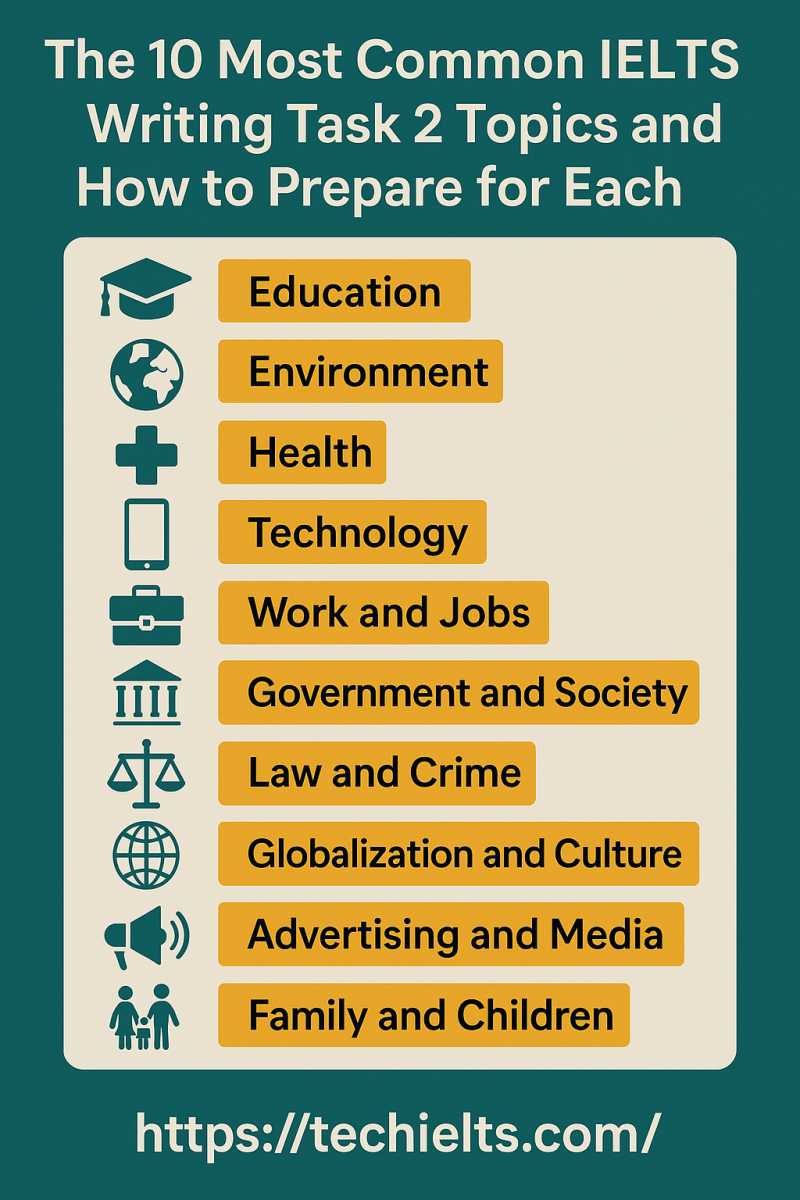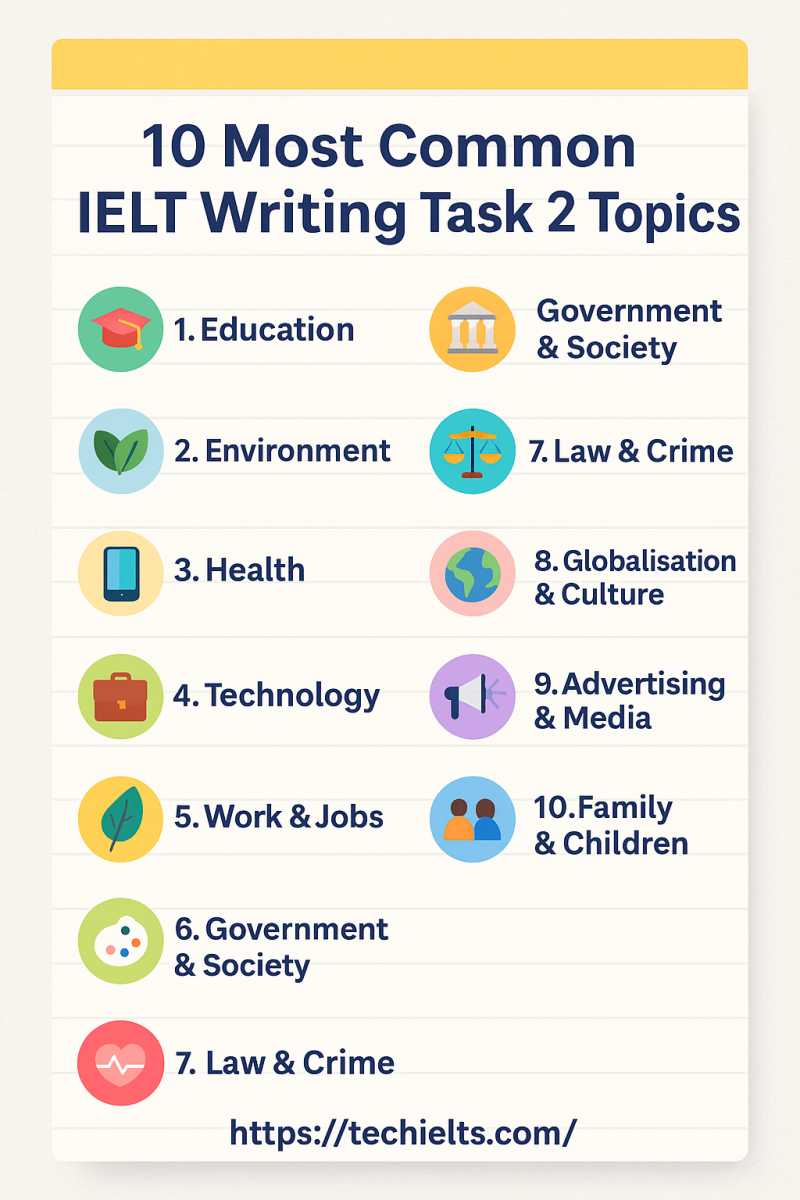If you’ve ever studied for the IELTS Writing Task 2, you may have noticed that a lot of the questions are about things you’ve seen before. IELTS doesn’t expect you to be an expert, but it does expect you to be able to explain your thoughts clearly, rationally, and with the right words.
You’ll learn the following from this guide:
- What 10 topics show up most often on IELTS Task 2
- Here are some questions for each subject
- The main points and reasons
- Words and phrases that are useful
- Tips on how to prepare well for each area
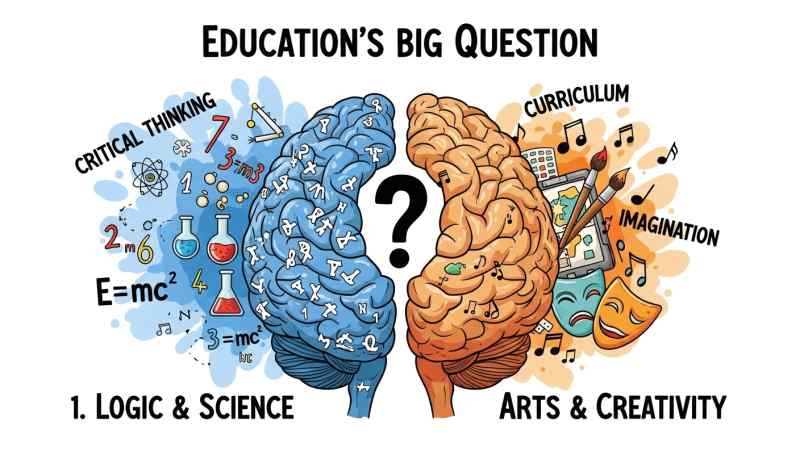
The reason you should study by topic for IELTS Task 2 is that it helps you:
- Spend less time thinking on the test
- Feel free to use topic-specific words
- Quickly come up with ideas by using related examples
- Make your writing more coherent and use more words (50% of your band score)
Top 10 Ideas for IELTS Writing Task 2
1. Schooling
Why it happens a lot:
Education is a problem that affects everyone around the world. Topics include school structures, tests, money, and ways to learn.
Examples of Questions:
- Should everyone be able to go to college for free?
- Some people say that school is more important than the arts. Do you agree?
Important ideas:
- Equal chance to go to school
- How important imagination vs. logic is
- Practical skills vs. theoretical ones
- Early schooling for kids
Useful words: curriculum, literacy, critical thought, tuition, vocational training, standardised tests
2. The Environment
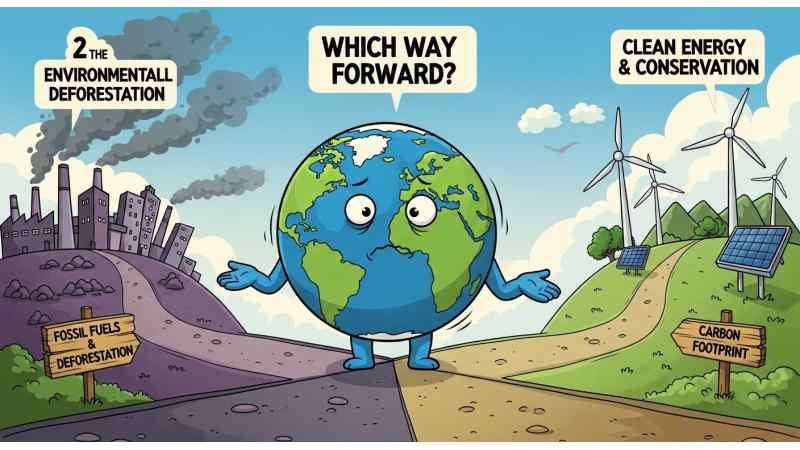
Why it happens a lot:
Pollution, global warming, and the environment are all big problems that affect everyone.
Examples of Questions:
- To stop climate change, governments are not doing enough. Do you agree?
- How can we clean up the air? What are the main causes of air pollution?
Important ideas:
- Fossil fuels vs. clean energy
- Car use vs. taking the bus
- Recycling and dealing with trash
- What states and people should do
Useful words: carbon footprint, emissions, wildlife, conservation, sustainable development, deforestation
3. Health
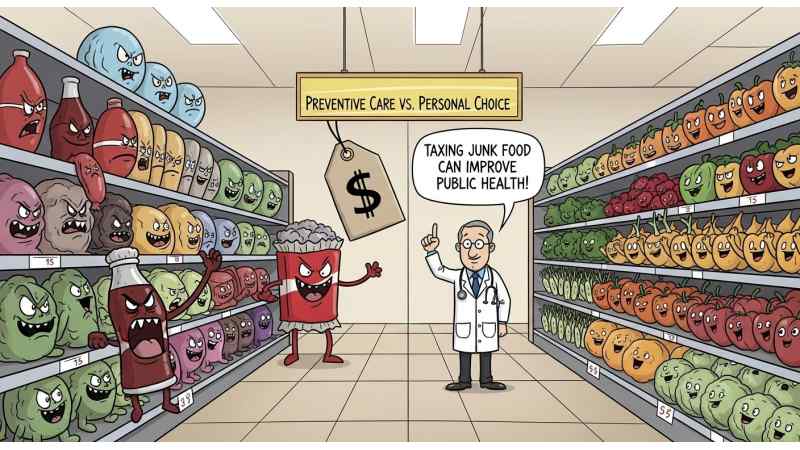
Why it’s common:
Health problems touch both individuals and society as a whole, making them a great subject for conversation.
Examples of Questions:
- Should cigarettes be taxed like junk food?
- What can be done to stop kids from being overweight?
Important ideas:
- Health of the public vs. personal duty
- Diet and way of life
- Awareness of mental health
- Campaigns by the government
Useful words: preventive care, nutrition, exercise, the healthcare system, well-being, chronic disease
4. Technology
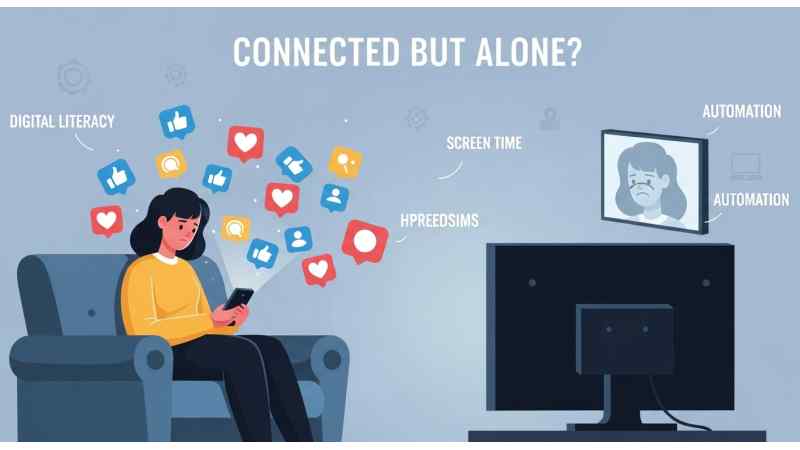
Why it happens a lot:
Technology changes the way we work, learn, talk, and even think.
Examples of Questions:
- Some say technology makes people feel alone. Do you agree?
- How does technology change the way you work?
Important ideas:
- Pros and cons of automating tasks
- Relationships and social media
- Cybersecurity and keeping your info safe
- What AI does in everyday life
Useful words: digital literacy, new ideas, AI, screen time, automation, online platforms
5. Work and Jobs

Why it happens a lot:
Everyday life includes jobs, career options, and equal treatment at work.
Examples of Questions:
- Should being happy with your job be more important than getting paid?
- Why do so many young people struggle to find work?
Important ideas:
- Flexibility and working from home
- Equal pay for men and women at work
- Gaps in skills and learning
- Stress and burnout at work
Useful words: job security, work development, unemployment, salary gap, job satisfaction, professional growth
6. The Government and People
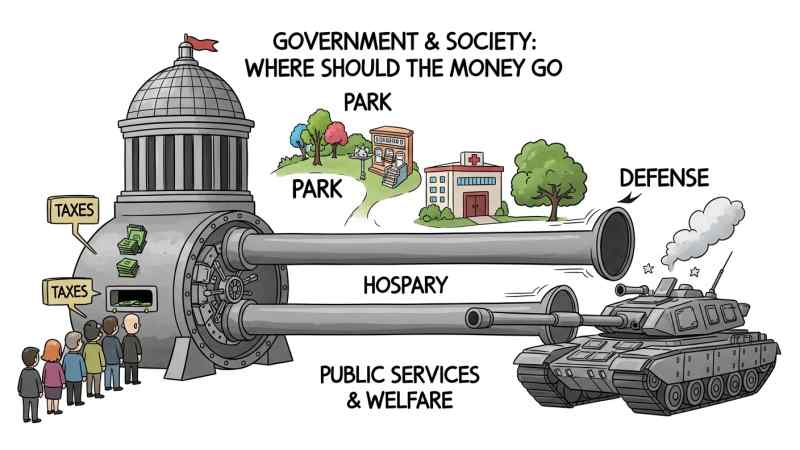
Why it happens a lot:
IELTS often checks how well you can think about social rules and duties.
Examples of Questions:
- Should the government put more money into arts and public services?
- Is it the job of the government to reduce income inequality?
Important ideas:
- Priorities for public funding
- Justice and fairness in society
- The role of the government vs. personal freedom
- Both taxes and grants
Useful words: legislation, policymaking, public infrastructure, subsidies, welfare system, social duty
7. Law and Crime
Why it happens a lot:
Justice and preventing crime raise important moral and social issues.
Examples of Questions:
- Crime goes down when jail terms are longer. Do you agree?
- What makes young people break the law?
Important ideas:
- Getting punished vs. getting better
- Reasons: poverty, lack of schooling, and peer pressure
- Justice for kids
- Police and surveillance
Useful words: deterrent, recidivism, criminal justice, law enforcement, recovery, youth crime
8. Globalisation and the Arts
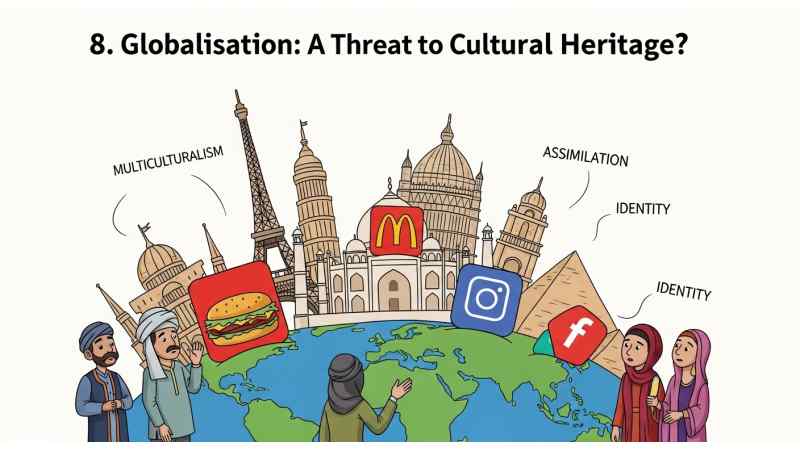
Why it happens a lot:
IELTS explores how globalisation changes identities, customs, and languages.
Examples of Questions:
- Is globalisation bad for different cultures?
- Should world languages be taught in schools?
Important ideas:
- Preservation of culture vs. mixing
- The impact of fast food and Western media
- Immigration and identity
- Loss of language
Useful words: heritage, assimilation, multiculturalism, identity, global economy, culture
9. Advertising and the Media
Why it’s common:
IELTS often asks about how advertising and mass media affect people.
Examples of Questions:
- Should ads aimed at kids be banned?
- Should people look up to famous people?
Important ideas:
- Ethics in marketing and consumerism
- Bias in the news and fake news
- Effects on self-image
- How celebrities influence society
Useful words: brand loyalty, focused marketing, bias, endorsement, social influence, consumer behaviour
10. Family and Kids
Why it happens a lot:
Family relationships and child development are relatable topics that most test takers can write about.
Examples of Questions:
- Should both parents take turns raising children?
- Why do young kids spend so much time on screens?
Important ideas:
- Roles of parents
- Instruction and discipline
- Generational differences
- Media’s effect on behaviour
Useful words: parenting styles, family organisation, discipline, conversation, upbringing, childhood development
How to Get Ready by Subject (Step-by-Step)
- Sort old IELTS questions by subject
- Make a list of words related to each topic
- Come up with 2–3 main ideas for each general prompt
- Use the PEEL method to write full or partial responses
- Review Band 9 samples to learn how ideas are developed
Practice Task: Planning an Essay Based on a Topic
Health: Should states tax sugary drinks to cut down on obesity?
Plan:
- Obesity is rising, and sugary drinks are a key factor
- BP1: Support: Taxes reduce consumption (example: Mexico)
- BP2: Against: Education is more effective than punishment
- Best solution: A combination of taxation and public education
Activity to Improve Your Vocabulary
Choose five topics and complete the table:
| Topic | 3 Vocabulary Words | 1 Opinion |
| Health | nutrition, obesity, awareness | Public education is more effective than jail time |
| Technology | automation, digital gap, screen addiction | Children should have limited access to social media |
| Crime | prevention, rehabilitation, surveillance | Education is the best method to reduce youth crime |
| Environment | pollution, recycling, conservation | Everyone—not just governments—must take action |
| Education | curriculum, tuition, equal access | Arts and science should be equally funded |
Thoughts for Now
Topic-based preparation is extremely useful on the day of the IELTS Writing Task 2 test because the topics are easy to anticipate. Focus on:
- Becoming familiar with common themes
- Practising idea generation
- Memorising vocabulary
- Structuring essays properly
If you prepare deeply by topic and practise consistently, you’ll be ready for any prompt IELTS gives you.
Call to Action
Which subject is hardest for you: science, crime, or education? Tell me in the comments what you need, and I’ll send you a personalised vocabulary list and lesson plan.

About the AuthorWelcome to TechIELTS. I’m Md. Jahangir Alam, an experienced engineer with over 15 years in electrical and automation systems. Alongside my engineering career, I’ve developed a strong interest in English language learning and IELTS preparation.
I hold a Duolingo English Test score of 135 (IELTS 7.5 equivalent) and am currently pursuing an M.Sc. in Cyber Security from Royal Holloway, University of London. I use my technical background to create clear, structured IELTS learning materials for students and professionals.
👉 Connect on LinkedIn

